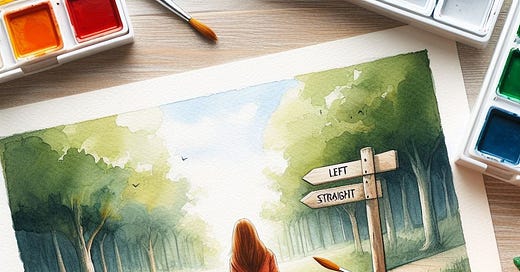Ethics is a set of moral principles or a theory or system of moral values. It is a way of dealing with what is good and bad.
It’s hard to pin down what’s ethical in the “gray” areas. Especially when you’re under peer pressure (Everyone does it) or in a hurry (Make up your mind!). It’s far too easy to accept a customer’s offer of free tickets, flirt with a coworker, or expense a meal that really shouldn’t be. I’m not talking about the big and obvious ethical issues (obviously you shouldn’t kill anyone) but the small, everyday choices you have to make.
It takes too much time and effort to deliberate about everything as it comes up. You need to be able to live your life with integrity without a lot of delay.
The simple solution to the problem of dealing with ethical questions is to build your own code of ethics.
A code of ethics is a set of pre-existing rules that you’ve already thought over and committed yourself to follow. It can save you and your reputation.
Mapping your own ethics code:
Define your values. Is it ever okay to take or accept something you haven’t earned? Is it unethical to eat meat? How about spanking a child? Causing pollution? Smoking some weed? Here’s my broad general definition that can serve as a basis for specific decisions.
Does it cause unnecessary harm or suffering to others? Also, consider legality and the rules of conduct we normally expect from others. Expensing a meal improperly might not be illegal, but it can harm you and your reputation.
Does it pass the “sniff” test? Act as if this decision would be reported by a very unsympathetic but honest person to your family, friends, and employer. If there’s even a whiff of impropriety, it can harm you.
“Caesar’s wife must be above suspicion.”
— Julius Caesar
Sometimes harm to one being is necessary to help another. We all must eat to survive. As a society we have decided it is okay morally to eat meat. However, it is immoral to cause the animals unnecessary suffering. You must weigh the costs carefully.
Consider the costs that are put on others. Is it ethical to burn coal, profit from the sale and mining of the coal, and leave the "external" costs such as carbon emissions, mining tailings, lung diseases, etc. to be borne by other people? Go deeper and weigh the consequences of NOT burning coal in today’s world.
Position yourself so your default choices will be to do what is best for you (and others) in the long term.
What kinds of ethical issues could affect you?
Accepting or offering bribes or “incentives”.
Abuse from or by managers or others.
Sexual misconduct including harassment.
Use of force or coercion.
Bullying.
Cyberstalking.
Lying, cheating, and stealing.
How will you commit yourself to dealing with them?
Why is it important?
Lay out your personal code of ethics before it’s needed so you can act decisively in a way that’s good for your long-term interests.
It’s simpler to defend your choice. Saying “I’ve made it a rule to avoid things that can backfire” is something that most people won’t challenge.
You will not be caught flat-footed when a quick decision with moral implications is needed.
Less day-to-day stress because this can be a “Once and Done” exercise. Instead of the slow and effortful process of reviewing all the pros and cons of a choice, you can skip to the end for many of them.
You’ll also have a good starting basis if something totally unexpected happens.
That’s my perspective…






